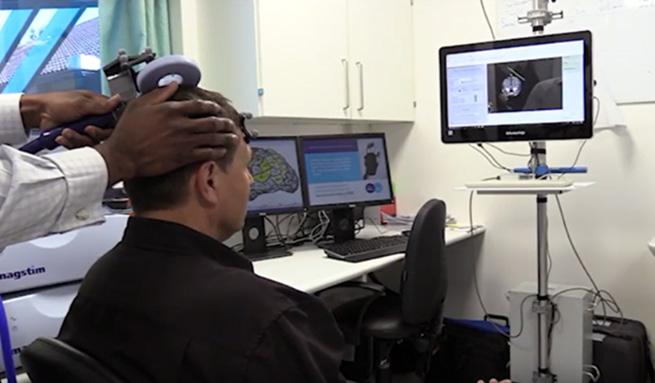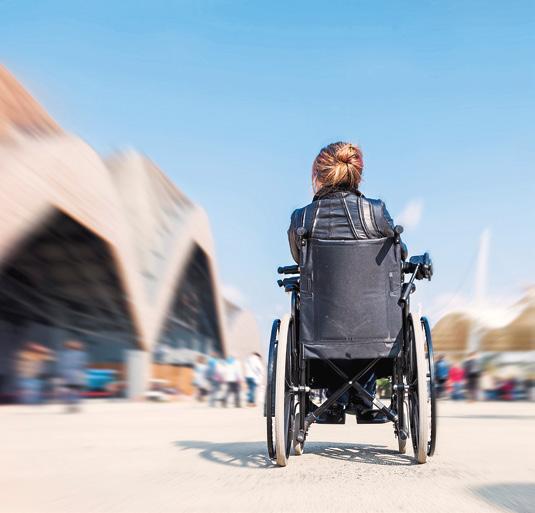
2 minute read
MEMORY LOSS
With Brain Awareness Week taking place from 13–19 March, Joy Sinclair takes a look at coping with memory loss as you age with SCI
WHAT IS MEMORY?
Memory might be described as the process of absorbing information, processing it, storing it and then being able to retrieve it at a later date.

Memory Loss And Sci
JOY SINCLAIR
THE AGEING BRAIN
On its own, SCI does not cause memory loss, but many factors may contribute to memory loss following SCI. These factors can include:
If you suffer from severe memory loss, it would be wise to consider creating a Power of Attorney.
Ageing
well consultant
As we age, changes in brain function can influence the way we live our lives. We may be noticeably slower in completing daily tasks, take longer to complete the crossword, forget a close friend’s name when introducing them or need help to complete a once simple piece of knowledge. But the ageing brain can come with positives too, such as better judgement and decision making, wisdom and the ability to deal with negative thoughts.
• A head injury sustained at the time of your initial trauma – this can remain undiagnosed until symptoms become apparent some weeks or months later
• Chronic fatigue and/or pain
• Long-term use of certain medications, such as analgesics and antidepressants
• Mental health issues
• Reduced oxygen to the brain, as can occur in impaired respiratory function.
Recognising Early Signs
We have all mislaid our keys or forgotten why we entered a room. This can be annoying but is not necessarily a sign of declining memory.
Familiarise yourself with what is normal for you and your age but resist the temptation to compare yourself with others. We are all individuals, ageing at different rates.
Family members or friends may notice subtle changes in your behaviour, so try to engage with those closest to you if you feel your ability to retain information is changing.
What helps reduce memory loss?
Ways to manage memory loss and strengthen your brain function
• Keep to a regular daily routine, as much as possible
• Make a list each day of things to do but try to avoid covering the fridge and other surfaces with lots of Post-it notes, as this can prove overwhelming
• Avoid too many distractions
• Manage stress levels / stressful situations
• Have realistic goals and timeframes, and don’t be shy about enlisting the help of those closest to you
• Work with an occupational therapist if necessary
• Avoid loneliness
• Repeat a skill regularly; this helps the brain to recognise it
• If you immediately forget someone’s name when introduced to them, try to develop your own method to overcome this. Word-association can be helpful, using a word that rhymes with their name.
Seeking Medical Advice
If you are worried about memory loss, book an appointment to see your GP. They may carry out a physical examination and take blood for testing. You may be asked a series of questions, such as, what prescription medications do you take, and when did you first notice problems with your memory? You should disclose the details of any serious medical issues, your SCI and any recent major stressful events in your life, such as loss of a partner.
• Lifestyle choices: follow a healthy diet and keep well hydrated
• Excessive alcohol can seriously affect your memory so try to stay within safe limits
• Reduce or give up smoking
• Exercise: take regular physical exercise, within your capabilities
• Maintain regular brain exercises, such as crossword puzzles or learning a language, taking up a new hobby or reviving past skills
• Get sufficient quality sleep
• Social interactions with family and friends, especially playing with grandchildren. Regular contact with other people will help avoid feelings of isolation and loneliness.
Further Information
For more information on memory loss, please follow the links below headway.org.uk or ageuk.org.uk








